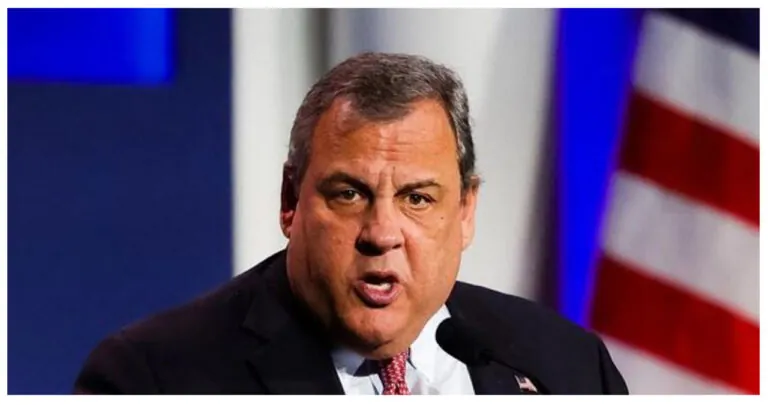Majority Supports Marijuana Legalization in Ohio Polls Ahead of Ballot Initiative Vote
As the clock ticks down to Election Day in Ohio, two fresh polls reveal that a significant majority of voters are in favor of the legalization of adult-use cannabis. This topic is presented as Issue 2 on the state ballot.
According to a recent poll conducted by Public Policy Polling, 59% of Ohio voters surveyed would vote in favor of Issue 2, while 39% would vote against it. With only 2% of respondents being undecided, it seems that the majority of Ohio voters have made up their minds on this issue. The survey included 638 participants and provided valuable insight into the opinions and beliefs of Ohio voters.
According to a recent poll conducted by Northern Ohio University, the majority of voters, approximately two out of three, are in favor of legalizing marijuana. However, the poll did not specifically inquire about Issue 2. The survey instead focused on the attitudes and usage of cannabis, as well as policies surrounding the drug in general.
According to the Northern Ohio University survey, despite the challenges, the pollsters suggest that the results are a positive sign for Issue 2.
According to Robert Alexander, a political science professor and the founding director of the Institute for Civics and Public Policy at Ohio Northern University, there has been an accelerating trend toward legalizing recreational marijuana nationwide. It seems that Ohio is also likely to follow suit, as attitudes towards the use of recreational marijuana are becoming more favorable in the state.
According to the survey, a mere 8 percent of those polled believed that marijuana should be completely prohibited. A significant portion, 23 percent to be exact, stated that it should only be legalized for medicinal purposes. The vast majority, comprising 66 percent of the respondents, expressed support for the legalization of marijuana for both medical and recreational use.
According to a recent survey, there is a clear divide in opinions on the legalization of adult-use cannabis, with political affiliations playing a significant role. The study found that 82% of Democrats and those who lean towards the Democratic party are in favor of recreational legalization, while only 48% of Republicans or Republican-leaning voters support the idea.
Despite the prevailing sentiment, a significant number of Republican voters expressed support for the legalization of both medical and recreational marijuana. A plurality of GOP voters, amounting to 53 percent, believe that cannabis should be legal for both recreational and medical purposes. Meanwhile, 35 percent of the respondents were in favor of legalizing marijuana solely for medical purposes. Only a small percentage, comprising 12 percent of the participants, were against any form of legalization for cannabis.
According to a poll conducted by Northern Ohio University, individuals were also questioned about their use of marijuana and their societal views regarding cannabis. The poll revealed that a significant percentage of voters, both on the left (74 percent) and right (60 percent), admitted to using cannabis.
In the survey, it was found that approximately 67 percent of the respondents had used marijuana while 31 percent had not. However, 13 percent of the participants were hesitant in answering the question. Amongst those who admitted to using marijuana, 50 percent claimed to use it rarely while 29 percent used it on a daily basis.
It’s not surprising that many people are familiar with others who use cannabis, as per the research findings. When asked about the consumption habits of their friends and family, 32 percent acknowledged that some of them use it, while 23 percent said that most do. On the other hand, 22 percent claimed that very few of their acquaintances use it, and 18 percent reported no usage at all. Only a small fraction of 5 percent were unsure about the cannabis consumption habits of their close ones.
According to the survey, 41% of those who participated believe that using marijuana openly is socially acceptable. Meanwhile, 31% stated that they find it tolerable, while 24% said that it was unacceptable.
According to the survey, people were also asked to share their views on individuals who use marijuana. The results showed that 82 percent of respondents stated that their opinion of a friend or family member would remain unchanged if they used cannabis. Surprisingly, only 9 percent of respondents admitted that they would think less of the person, while 5 percent mentioned that they would actually think better of them.
As per the survey conducted by Alexander and his team, there has been a lot of buzz around the legalization of marijuana in the state. However, the current usage and overall perception around it still remains a mystery. While discussing the survey results, Alexander stated that the findings suggest that a majority of people have used marijuana, with some being regular users. Additionally, the survey revealed that people are generally accepting of marijuana usage. The study has shed light on some interesting insights about marijuana usage in the state.
According to a recent survey, a majority of cannabis users, precisely 84 percent, limit their consumption to after work hours, which should be a relief for employers. However, a small percentage of users, 6 percent, admitted to using cannabis before work, while 2 percent said they consume both before and after work. Additionally, 8 percent of users reported using cannabis during work hours, at least on some occasions.
According to a recent survey, which was conducted in partnership with the polling firm Lucid and involved 668 registered voters, the data was collected from October 16-19. The results have an overall margin of error of 3.8 percent, although the margins of error may differ for specific responses.
According to recent surveys conducted among Ohio voters and lawmakers, Issue 2 is likely to pass with flying colors. Another survey, specifically aimed at likely voters, revealed that 57% of them are in favor of the legalization measure, with even a small majority of Republicans showing support.
According to a recent survey conducted among 35 state lawmakers, it was found that a majority of both Democrats (63 percent) and Republicans (52 percent) believe that the measure will be approved by the voters.
Despite the expectations of Ohio lawmakers that the initiative will pass, there is opposition from many Republican elected officials who do not support it. The GOP-controlled Senate recently passed a resolution urging residents to reject the measure, just as early voting began this month.
The November 7 ballot features a legalization ballot measure with several crucial provisions. Let’s take a closer look at these key provisions without delay.
Key Provisions of the Legalization Ballot Measure on the November 7 Ballot
- The initiative will permit adults aged 21 and older to legally possess up to 2.5 ounces of cannabis and up to 15 grams of marijuana concentrates.
- Individuals will have the authority to cultivate up to six plants for personal use, with a maximum limit of 12 plants per household.
- A 10 percent sales tax will be levied on cannabis sales, with the revenue allocated to support various purposes, including social equity and jobs programs (36 percent), localities that permit adult-use marijuana businesses (36 percent), education and substance misuse programs (25 percent), and administrative costs for system implementation (three percent).
- The state Department of Commerce will establish a Division of Cannabis Control with the power to license, regulate, investigate, and penalize operators of adult-use cannabis, testing laboratories, and individuals required to be licensed.
- The measure grants a head start in the recreational market to current medical cannabis businesses. Regulators must start issuing adult-use licenses to eligible applicants who operate existing medical operations within nine months of enactment.
- The division will also be obligated to issue 40 recreational cultivator licenses and 50 adult-use retailer licenses, giving preference to applicants participating in the cannabis social equity and jobs program. Regulators will also have the authority to issue additional licenses for the recreational market two years after the first operator is approved.
- Individual municipalities will retain the ability to decide whether or not to allow new recreational cannabis companies to operate in their area. They cannot, however, prevent existing medical marijuana businesses from adding co-located adult-use operations. Employers can continue to enforce policies prohibiting their employees from consuming cannabis for adult use.
- Additionally, regulators will be mandated to establish an agreement with the Department of Mental Health and Addiction Services to offer cannabis addiction services, encompassing education and treatment for individuals with addiction issues related to cannabis or other controlled substances, including opioids.
- In terms of social equity, some advocates express concerns about the absence of specific language regarding automatic expungements to clear the records of individuals with convictions for offenses that would become legal under the legislation. Nonetheless, the measure does incorporate a provision that requires regulators to conduct a study and allocate funding for criminal justice reform initiatives, including expungements.
According to local media reports, state Sen. Mark Romachuk (R) from the Republican party has expressed concerns regarding the passing of Issue 2. He believes that it will result in various challenges for children, road safety, and workplaces. Romachuk stated that maintaining safe working environments, especially in Ohio’s manufacturing industry, which requires high alertness and precision, would be difficult. Additionally, he criticized the proposed 10 percent tax for being too low.
According to Senate President Matt Huffman (R), if the measure is approved, it will be brought back before the lawmakers for amendments. He clarified that he is not looking to completely repeal the legalization plan, but instead wants to review it and make necessary changes or repeals.
Last month, several Ohio legislators expressed skepticism about the possibility of the legislature repealing a voter-approved legalization law. According to Rep. Ron Ferguson (R), who spoke to The Dispatch, there aren’t enough legislators in both chambers who are in favor of repeal. He pointed out that there are no Democrats who would support it, and the number of Republicans in favor of it isn’t enough to make it happen.
As the election approaches, both sides of the campaign have been ramping up their messaging and efforts to encourage people to vote. Recently, the yes campaign sent out cease and desist letters to TV stations that were airing opposition advertisements that they deemed as being “filled with lies.” Meanwhile, the Campaign to Regulate Marijuana Like Alcohol released their own pro-Issue 2 election ad.
A new advertisement was released by the yes campaign last week. The ad presents a neighboring Michigan town’s perspective, which mocks Ohio for losing tax revenue due to Ohioans driving across state borders to purchase marijuana from licensed stores.
Just a few days after a recent economic analysis revealed that Issue 2 could generate a net benefit of approximately $260 million to the state each year, an advertisement was released.
According to a report, the simulation model indicates that the legalization of recreational marijuana would bring a positive net economic benefit to society in 90 percent of likely scenarios. The report also highlights that the possibility of extremely positive results is higher than the possibility of extremely negative results.
An independent study conducted by researchers at Ohio State University revealed that the proposed change in policies could generate an additional $404 million in tax revenue each year. The study sheds light on the potential financial benefits that could arise from implementing this change.
According to reports, Attorney General Dave Yost (R) has released an analysis of the initiative, aimed at providing voters with crucial clarity and transparency in the midst of a campaign that has been rife with “inflamed and inaccurate” rhetoric.
While the GOP-led resolution shows a united front against recreational marijuana in Ohio, some Republican officials still hold differing opinions on the matter. Governor Mike DeWine, for instance, firmly believes that legalizing recreational marijuana would be a grave mistake. He even visited Colorado after its legalization in 2012 and witnessed what he called an “unmitigated disaster.”
In 2012, Sen. John Hickenlooper (D-CO) was the governor of Colorado. Last year, he shared that he was initially worried that legalizing marijuana would lead to an increase in usage among young people. However, he eventually realized that his concerns were baseless.
According to Hickenlooper, the data has shown that there has been no increase in experimentation among teenagers, frequency of use, or instances of driving while high. He confidently stated that all concerns related to these issues did not come to fruition.
In contrast to the prominent Republican officials of Ohio, one of the state’s GOP representatives in the Congress, Rep Dave Joyce, who also co-chairs the Congressional Cannabis Caucus, announced his support for the initiative last month. He urged all Ohio citizens to actively participate and express their opinions on this crucial matter.
In August, the legalization measure was granted approval for summary language by the Ohio Ballot Board.
In 2015, Ohio voters had the opportunity to legalize marijuana and entrust the market to a select group of producers through a constitutional amendment. Unfortunately, the proposal was rejected by a significant margin of 64-36. However, the organizers of the current campaign have taken this defeat as a learning experience and have used those lessons to create a new initiative. They have carefully crafted their proposal to ensure its success this time around.
With the potential passing of this initiative, the number of states that have legalized adult-use would increase to a total of 24.
In May, a group of bipartisan lawmakers from Ohio proposed a bill that would legalize marijuana in the state, providing the legislature with another chance to lead the way in this reform. However, the bill has yet to make any significant progress. As a result, the decision on whether or not to legalize marijuana in Ohio is now in the hands of the voters.
The ballot measure in Ohio that aims to legalize marijuana does not come with a provision to automatically expunge prior convictions related to cannabis. This means that individuals who have been convicted of non-violent marijuana-related offenses in the past will not have their records cleared if the measure is passed. Despite this, proponents of the measure argue that it is still a step in the right direction towards ending the prohibition of marijuana and its criminalization. The ballot measure is set to be voted on during the November 2021 election.
If you find our cannabis advocacy journalism informative and helpful, please consider supporting Marijuana Moment through a monthly Patreon pledge. Your contribution helps us continue to provide quality content to our readers.







